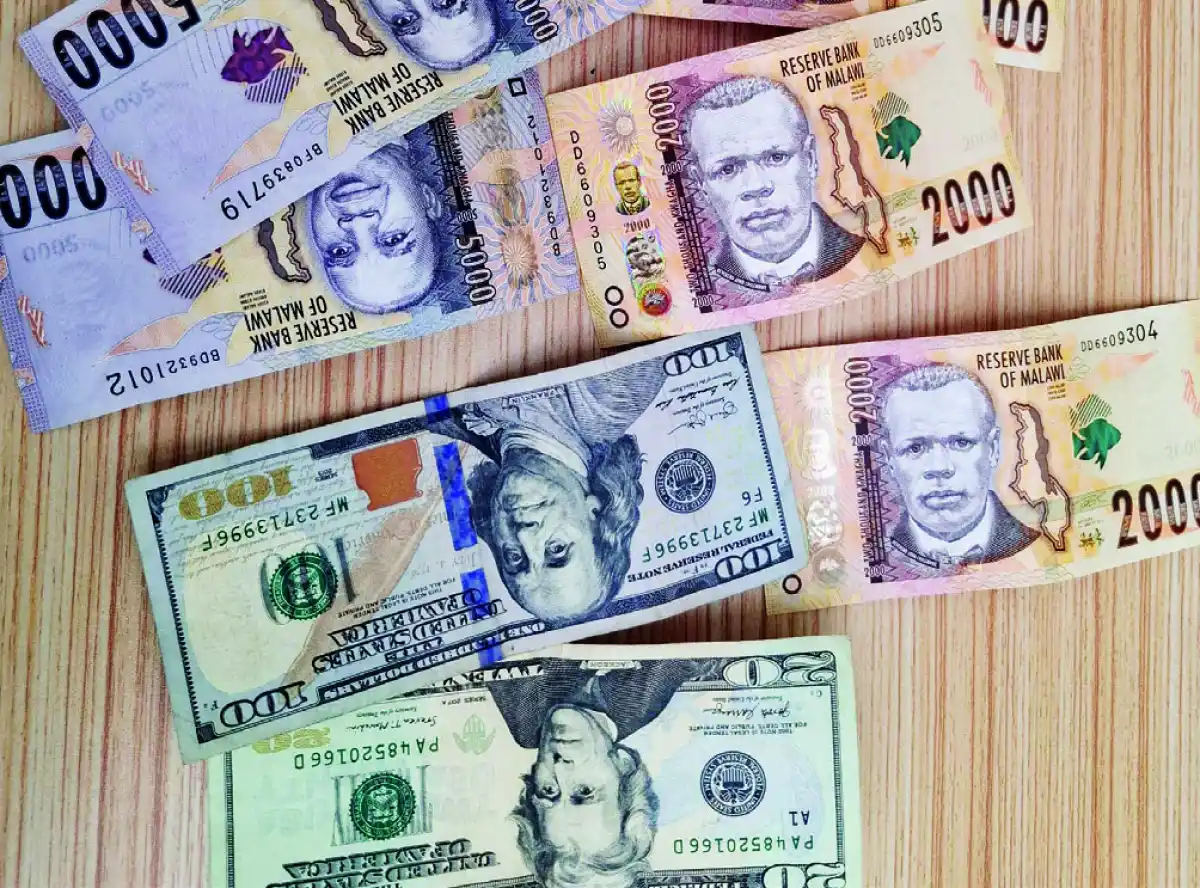
By Pemphero Malimba:
The Kwacha’s official exchange rate continues to diverge significantly from the black market, with the parallel market rate now touching K3, 000 to the dollar.
Ironically, the official exchange rate for the dollar has remained steady at K1, 751 to the greenback since early this year.
A snap survey by The Times Business has established that in Blantyre and Lilongwe, black market operators were buying the dollar at between K2, 900 and K2, 950 and selling it at K3, 000.
This has culminated in a difference of K1, 250 between the official and black-market rates.

In an interview, on Tuesday, Economics Association of Malawi (Ecama) President Bertha Bangara Chikadza said the widening gap between the official and parallel markets could be attributed to foreign exchange shortages and structural imbalances in the economy.
According to Chikadza, limited dollar supply at official channels despite being readily available on the parallel market has pushed businesses and individuals to the informal market, where higher rates prevail due to increased demand.
“There is a lot of speculation regarding the exchange rate and this is widening the gap between the official exchange rate and the parallel market rate. Additionally, there is a lot of informal business and trading in the economy and these are being serviced on the parallel market. Further, import-dependent businesses and traders are forced to source forex on the black market to sustain operations, widening further the gap.
“Policy measures, such as restrictive exchange controls and a managed float regime, may also be distorting market dynamics,” Chikadza said.
She observed that in the short term, the government should focus on implementing policies that curb the proliferation of the parallel market as it is driving up speculative tendencies.
Chikadza went on to say policies that can help increase foreign exchange availability to ease pressure on the formal market should be enhanced.
“This can be achieved by securing immediate support from multilateral partners, efficiently managing export proceeds to prioritise critical imports, and encouraging remittances and private sector forex flows through formal channels.
“Gradually aligning the exchange rate closer to market dynamics is also essential to reduce distortions and discourage black market activities. However, such adjustments must be accompanied by social protection measures to cushion vulnerable groups from inflationary pressures and rising import costs,” Chikadza added.
In the long term, the Ecama chief said the government must prioritise structural reforms that boost foreign exchange earnings and reduce dependence on imports.
She said policies that promote export diversification, value addition in key sectors like agriculture and mining, and attract foreign direct investment (FDI) would help strengthen forex reserves.
“Additionally, improving fiscal discipline, controlling inflation through prudent monetary policies, and enhancing transparency in forex management will support sustainable economic stability.
“By combining short-term measures with long-term solutions and adopting a phased alignment strategy, the government can strike a balance between pragmatism and economic theory, ensuring economic recovery, stability and public confidence,” she said.
Asked as to whether the Reserve Bank of Malawi (RBM) is aware of the yawning gap between the official and parallel market, RBM spokesperson Mark Lungu said the central bank issues licenses to authorised dealers and these are the only authorised entities to operate foreign exchange business.
Lungu said anyone without the RBM licence is an illegal dealer and, therefore, not allowed.
He added that RBM has Memoranda of understanding with a number of law enforcement agencies, including the Malawi Police Service.
“Our expectation is, therefore, that if there are dealers out there not licensed by the bank, they should accordingly be questioned on the same and let the law take its course.
“We appreciate the role law enforcement agencies are playing as a number of such have been dealt with. However, following your inquiry, I guess there is more to be done to address the problem,” Lungu said.
In recent weeks, traders and manufacturers have been hiking the prices of their goods to factor in the high price of buying the dollar, which is used to import both raw materials and finished products.








0 Comments